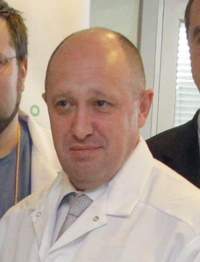Retired General David H. Petraeus Discusses Wagner's Coup Attempt

Key highlights of this evening's Ukraine Update by the great team at the Institute for the Study of War:
- Russian sources speculated on the deal mediated by Belarusian dictator Lukashenko to end the Wagner Group’s armed rebellion. Russian opposition outlet Meduza reported that Prigozhin initially tried to get in touch with the Russian Presidential Administration as Wagner fighters moved north towards Moscow, but that Putin refused to speak with him.
- Meduza noted that, once Prigozhin saw the lack of military support for Wagner’s actions and changed his mind on Wagner’s prospects, the Kremlin turned to negotiations.
- Prigozhin’s whereabouts cannot be verified.
- The specifics of the deal are still unclear, and it remains to be seen what the Kremlin intends to do with Wagner personnel and if Wagner fighters will cooperate.
- The implications of the Lukashenko-Prigozhin deal for the leadership of the Russian MoD remain ambiguous. Some Russian sources, suggest that the Kremlin may be considering changes to MoD leadership.
- Russia's Defense Minister Chief of the General Staff have not been heard from . Some sources suggest that the governor of Tula Oblast, former security officer to Putin, may replace Shoigu as the Defense Minister.
- Wagner forces continued to withdraw to their bases on June 25, but the Kremlin’s concept for leveraging Wagner fighters remains unclear. The Kremlin apparently intends to maintain certain elements of Wagner’s manpower rather than demobilize them, although the future of Wagner’s structure are unclear.
- Further details emerged on the composition of the Wagner units approaching Moscow on June 24, indicating Prigozhin would likely have struggled in an active conflict in Moscow without additional support.
- Prigozhin may have become amenable to negotiations as his forces drew nearer to Moscow and time was running out to garner the necessary military support for an armed conflict with the MoD.
- The ultranationalist Angry Patriots Club held an event in Moscow on June 25 and espoused longstanding criticisms against Putin and the Russian military leadership, suggesting that the Kremlin will not immediately begin cracking down on antagonistic ultranationalist groups in the aftermath of Prigozhin’s rebellion.
- Ukrainian forces continued counteroffensive operations on at least three sectors of the front on June 25. Ukraine's Defense Minister stated on Fox News that the main assault of the counteroffensive has not yet started.
- Russian forces’ ability to conduct offensive and defensive operations in Ukraine does not appear to have been substantially impacted by Wagner’s June 23-24 armed rebellion.
- Ukrain's Main Military Intelligence Directorate Head warned that Russia has finished preparations for an attack on the Zaporizhzhia Nuclear Power Plant, mining the ZNPP’s cooling pond and moving vehicles with explosives to four of the six ZNPP power units.
Read the original story on LinkedIn here




